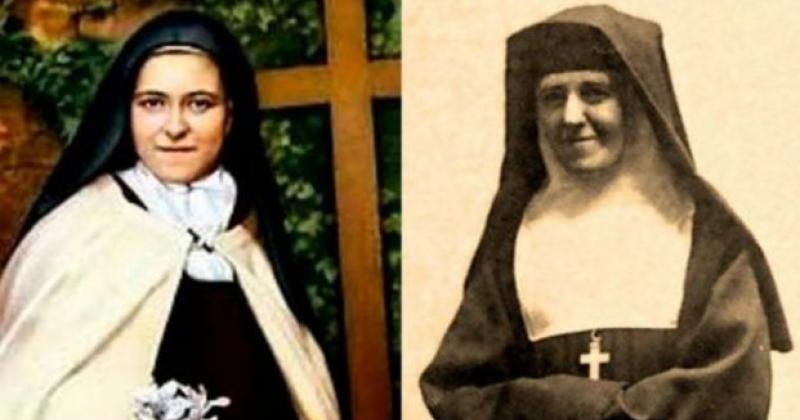With a sister who is a Doctor of the Church and parents set to be canonized in October, Leonia Martin could be the fourth member of her family declared as a saint after her own cause for canonization was recently launched.
Yesterday morning, Leonia’s cause was officially opened by Bishop Jean-Claude Boulanger of Bayeux-Lisieux in the chapel of the Visitation Monastery at Caen, France, where Leonia spent the majority of her life and where she died. Mass was celebrated following the cause opening.
The intention to open her cause was originally announced January 24, according to French daily La Croix. On April 25, a “recognition” of her body was made – a process which included opening her tomb to check the state of her remains.
With the opening of her cause, Leonia has now received the title “Servant of God” and is on the path toward beatification, the step in the sainthood process which precedes canonization.
The July 2 step comes at the conclusion of the initial phase of gathering all the historical documents related to her life.
The official opening of her cause signals that Bishop Boulanger has obtained the needed nihil obstat, the official approval of the Catholic Church from the moral and doctrinal point of view granted by the Congregation for the Causes of the Saints, which as of February was still being waited on.
Leonia is the sister of St. Therese of Lisieux and the third daughter of Blessed Louis and Zelia Martin, who are set to be the first couple ever to be canonized at the same ceremony, which will be held Oct. 18 in the Vatican.
The event will take place fewer than three weeks after the Oct. 1 feast of their daughter, and doctor of the Church, St. Therese of the Child Jesus.
In statements made to CNA in February, Carmelite Father Antonio Sangalli, Leonia's postulator, said the fact that St. Therese’s “difficult” sister is on the path toward sainthood is a reminder that holiness is call for everyone.
“Although she was expelled three times from the convent, she achieved her goal of becoming a religious, which shows that if we persevere, it is possible to do God's will,” he said.
“Leonia's difficulties were primarily due to her order's strict rules, which were very difficult to follow in those times. However, this did not lead her to bury the one talent she received and that she used fruitfully to fully live out her vocation.”
He noted that even before her cause was opened, Leonia was revered for her holiness and that her crypt at the Monastery of the Visitation in Caen is frequently visited by pilgrims from all over the world.
“They come to pray. They ask her for favors and they find spiritual help in her. Their faith is strengthened by the example of this humble sister of the Visitation, and many letters testify to graces received,” the priest said.
Leonia, who took the name Sister Francisca-Teresa, also suffered from physical problems as a child.
“She did not have the human qualities of her other sisters, but she knew how to abandon herself to God, who calls us all regardless of our qualities. No one is excluded from the call to holiness,” Fr. Sangalli said.
Leonia also had a close relationship with St. Therese, and the two often exchanged letters. After her saintly sister died, Leonia decided to try to enter the convent again, following the “little way” traced out by St. Therese, with trust and abandonment to God.
Fr. Sangalli said she ultimately was admitted to the convent, which “shows that Therese's doctrine is not only meant for the Carmelites but for everyone – with the little way, Leonia became a better sister of the Visitation, always remaining in the spirituality of St. Francis de Sales and St. Frances de Chantal, the founders of the Order of the Visitation.”
Leonia died June 17, 1941, at the age of 78 in the monastery where she lived. Her tomb has become a refuge for parents concerned about raising their children, who find in her an example and an inspiration.
